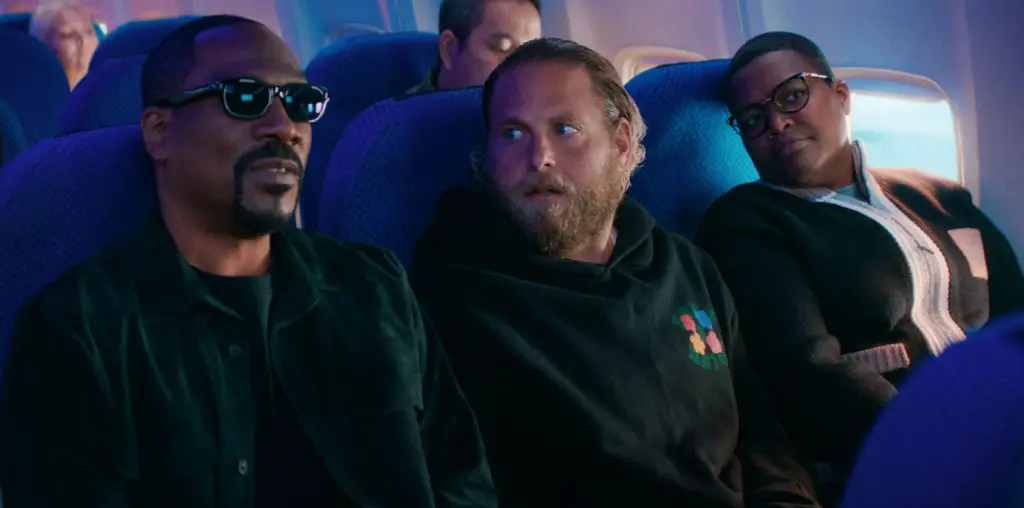
“What are you going to do, Flint?”
That’s the refrain said, oh, five or six times at the end of the “Season of Youth.” It’s a trick, really, to drag this former stage play from the realm of seventy minutes into the realm of ninety.
I’m guessing here.
“Season of Youth” started its life as a stage play, and I have to confess that I’ve never seen it. It could be a great play. It could be a terrible one. Either way, it made for a terrific movie.
Unfortunately, it’s a terrific movie with somewhat of a weak start. We meet Flint, a black kid from the Bronx. He’s eating breakfast, and thinking about his dad. His dad was a cop who died in the line of duty years ago, but the words his dad spoke, about the importance of breakfast and about going to college, have stuck with him.
On the other side of the tracks, we’ve got Taylor, who is white, and a big jerk. What’s unfortunate is that his introduction is handled pretty poorly – he’s presented as a rich white kid who gets into fights with his family for essentially no reason. That he’s not a nice guy is obvious – but why he’s not a nice guy is a mystery.
The kids share a history class, where they’re being taught by a Dr. Gelding. That the doctor is supposed to be a good guy is indicated by his steps to outdo Robin Williams in “Dead Poet’s Society.” He shows up to class each day dressed in the costume of a famous person from history.
We’re then subjected to speeches originally given by famous historical figures. These speeches are performed by the various members of the class throughout the film.
There are other oddities like this. An old man on a stoop sings the Black Panthers’ anthem; two guys rap freestyle on a street corner. All of this is injected between scenes.
But now it starts to get good. Taylor runs into Flint on a train platform. Flint is waiting for the train to carry him back into the Bronx, and Taylor, well, he has his own agenda.
Taylor saw Flint steal a Snickers bar. It was worth 75 cents, according to Taylor, but he implies that something as petty as that could easily be the end of Flint’s scholarship to the upscale private school they both attend. He tells Flint to meet him on the platform the next day.
Flint does, and on the platform the next day a lot of things go wrong for him.
To talk about the second half of the film is to remove the joy of the twists and turns. I’m reasonably certain that out of sheer necessity everything that happens on the platform was probably sucked straight from the original stage play. That would explain why the film goes from reasonably good to great at this point.
But I can’t lay it all at the feet of the original text. The speeches that felt somewhat out of place at the start of the film go from being a time-killing device to a tension-giving one. For that matter, there are probably two or three elements that simply shouldn’t work, that are so played out they should crash and burn. And instead, they just pull the rope tighter.
Universal kudos, also, to all of the young performers in this film. In a flick with so many people in it under the age of twenty, the acting was universally strong and rarely hokey. While I suspect, based on their delivery, that a lot of them are more used to stage work than film work, by the end of the movie they were all well in the game.
While there’s no doubt in my mind that this movie could use a trim here and there for pacing, I have a hard time giving it any grief. It may take a while to find its feet, but once it does it kicks, hard and fast. By the time I’d reached the end, I was genuinely intrigued with the saga of Flint and Taylor, and the last five minutes are well worth the price of admission.
“What are you going to do, Flint?” may seem like a cliched question – but it’s got a great answer.
